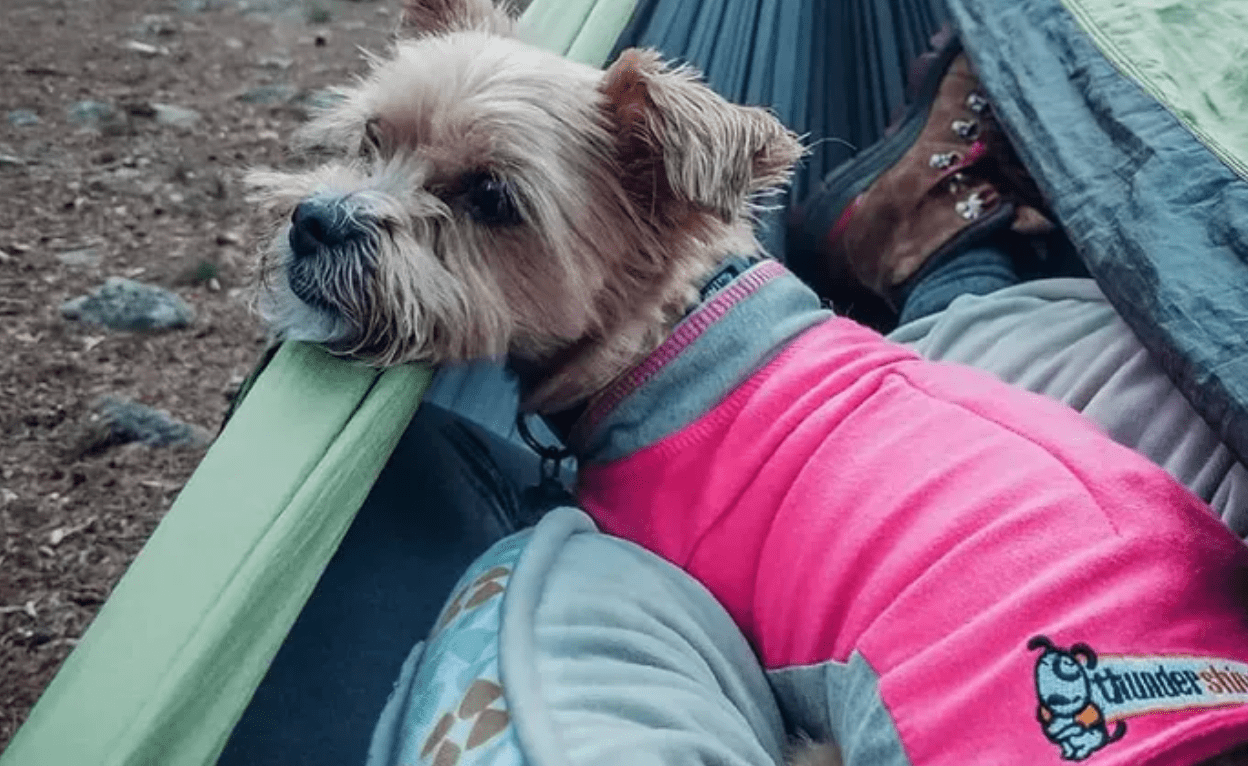On July 4th, your dog doesn’t have to exhibit anxious or tense behaviour for hours. Here is what to do.
For many, the Fourth of July may be an exciting occasion filled with delectable cuisine, loved ones, and lots of fireworks. However, this joyous occasion can be incredibly frightful and unsettling for dogs.
“The loud, unfamiliar sound that dogs cannot understand is thought to be the cause of anxiety surrounding explosions. They frequently interpret these noises as warnings of impending peril, according to Dr. Gary Richter, a veterinarian from California who founded Ultimate Pet Nutrition and wrote “Longevity for Dogs.”
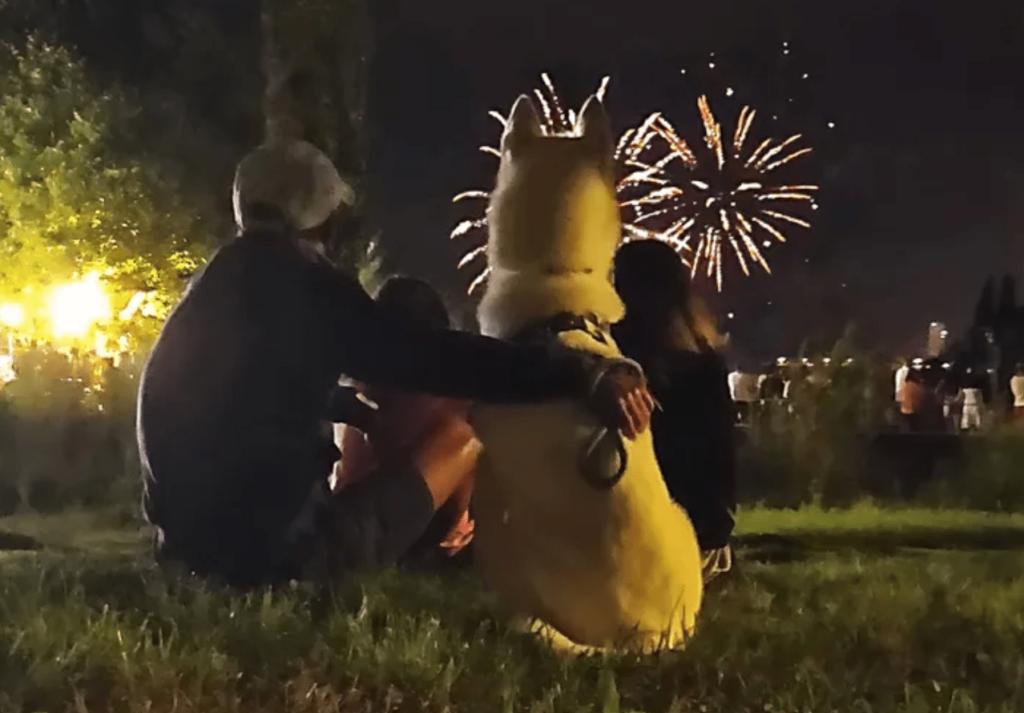
“Dogs undergo the same fight-or-flight response as humans do. They end up hiding or engaging in other tense behaviors like shaking, clinging to their owner, lip-licking, and frequent yawning because they have nothing to fight against with fireworks.
So how do you shield and reassure your fearful canine companion? For tips on how to prepare for this loud occasion and how to keep your dog calm amid fireworks, we turned to a few vets.
- Create a diversion
Your dog will enjoy watching TV on July 4th.
It’s crucial to provide your dog with the same level of distraction from frightening, unpredictable noises as you would for yourself.
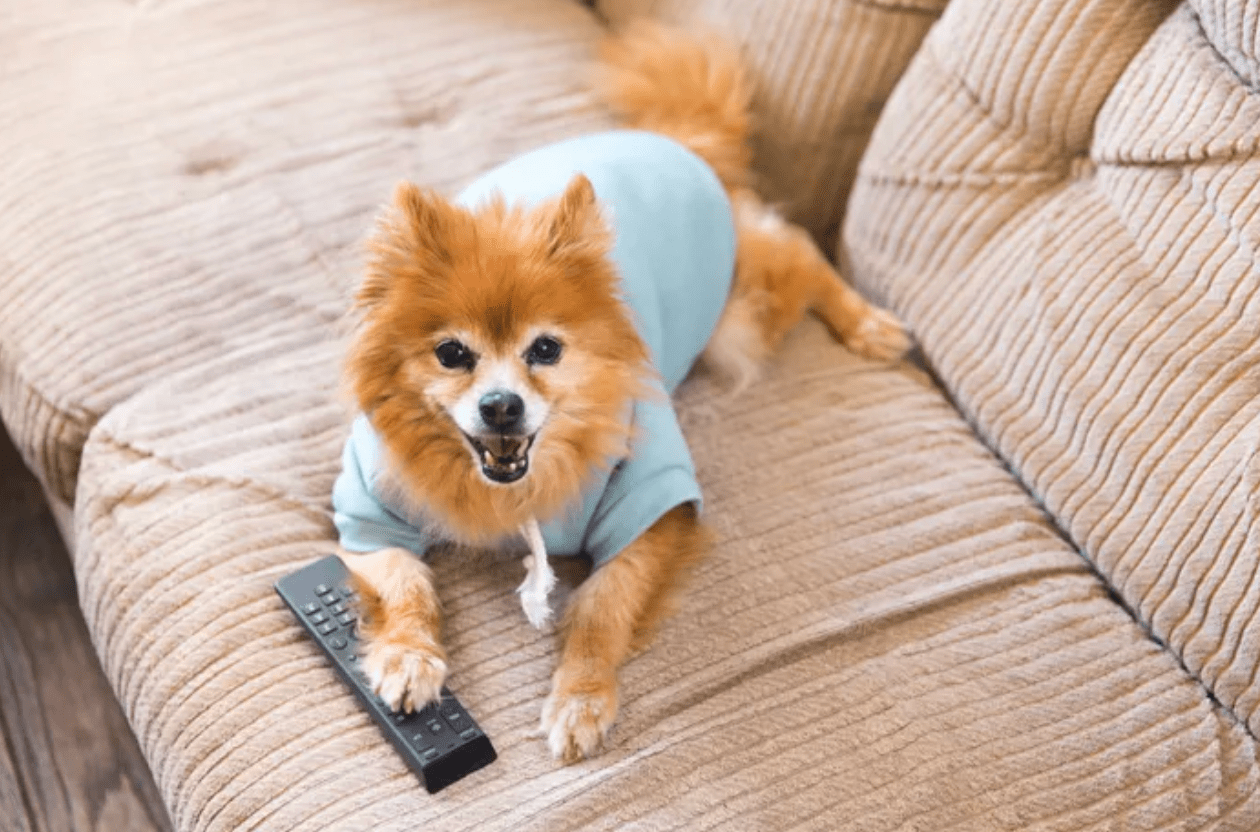
“You can put on a distraction in the house, like white noise and TV on in the background,” advised Dr. Grant Little, a Nebraska-based JustAnswer veterinarian specialist. “Basements with a TV can help drown out the noise because the sound is muffled.”
Long-lasting chew toys and lick mats are two additional helpful diversionary tools, advises Australian veterinarian Dr. Lisa Chimes, the owner of DOG by Dr Lisa.
- Purchase a weighted item for your pet.
Thundershirt offers sizing for tiny dogs under 8 pounds and large dogs over 110 pounds.
Weighted blankets and coats can be used for anxiety treatment if your dog finds comfort in them, according to Dr. Antje Joslin, a veterinarian for Dogtopia who practices in the Phoenix region.
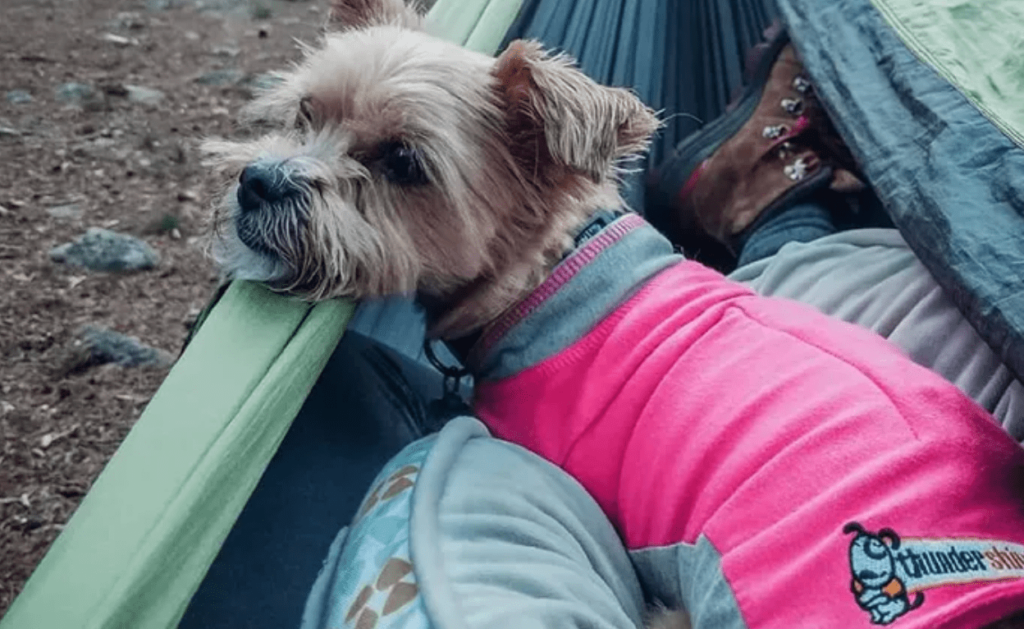
Little advises choosing a Thundershirt, which is essentially the canine version of a weighted blanket for adults and a swaddle for infants. For best results and benefits, just make sure to get the appropriate size based on your dog’s weight.
- Try loud stimuli exposure therapy.
When July 4th arrives, de-sensitizing your dog to the sound of fireworks over time can be helpful.
Getty Images/Holly Hildreth
When July 4th arrives, de-sensitizing your dog to the sound of fireworks over time can be helpful.
Over time, according to Rickter, dogs can become accustomed to and more at ease with the loud noises made by explosions and other stimuli.
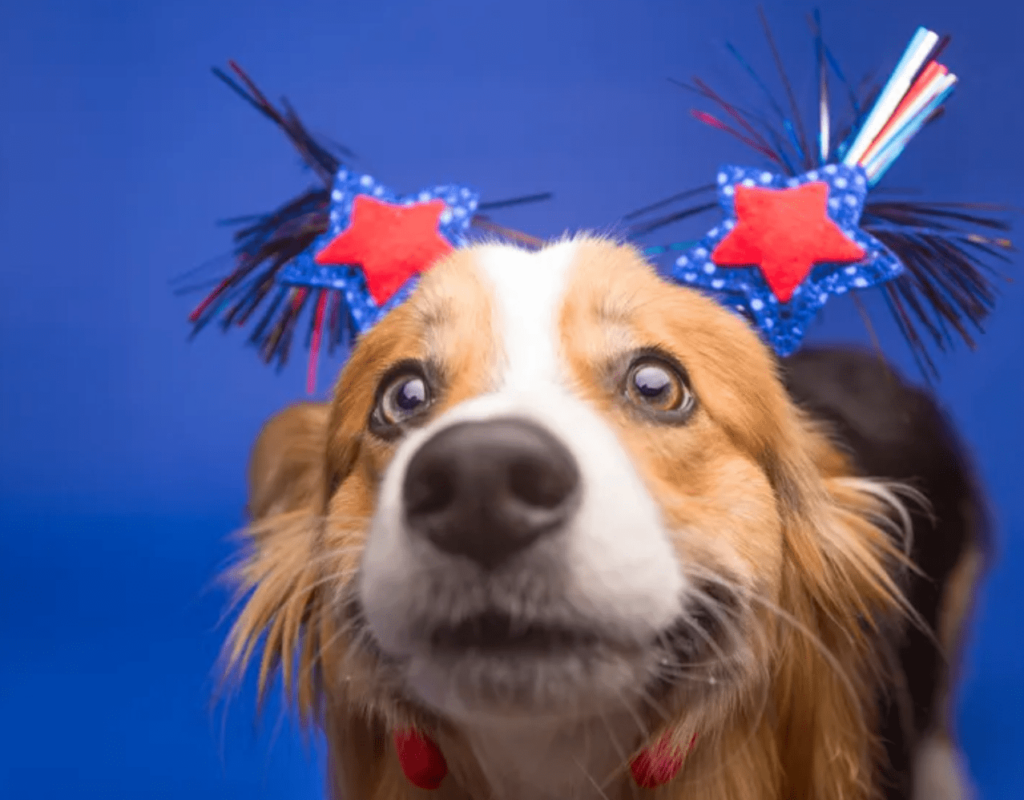
Richter advised playing firework noises inside the home at first at a very low volume, leaving it on for a while, and then gradually turning it up. With time, the dogs will develop acclimated to the sound and know nothing is wrong.
Richter stated that implementing this method might take some time and that you couldn’t just start it the week before Independence Day.
- Maintain your composure
Holidays like the Fourth of July may be stressful and anxious for both people and dogs, so try to make things as ordinary as you can.
Avoid worrying over your pet because this could make them more anxious; instead, Chimes advised engaging in regular activities. “Curl up on the couch with your dog and watch some TV if that’s what you usually do,” she said.
- Think about using medication.
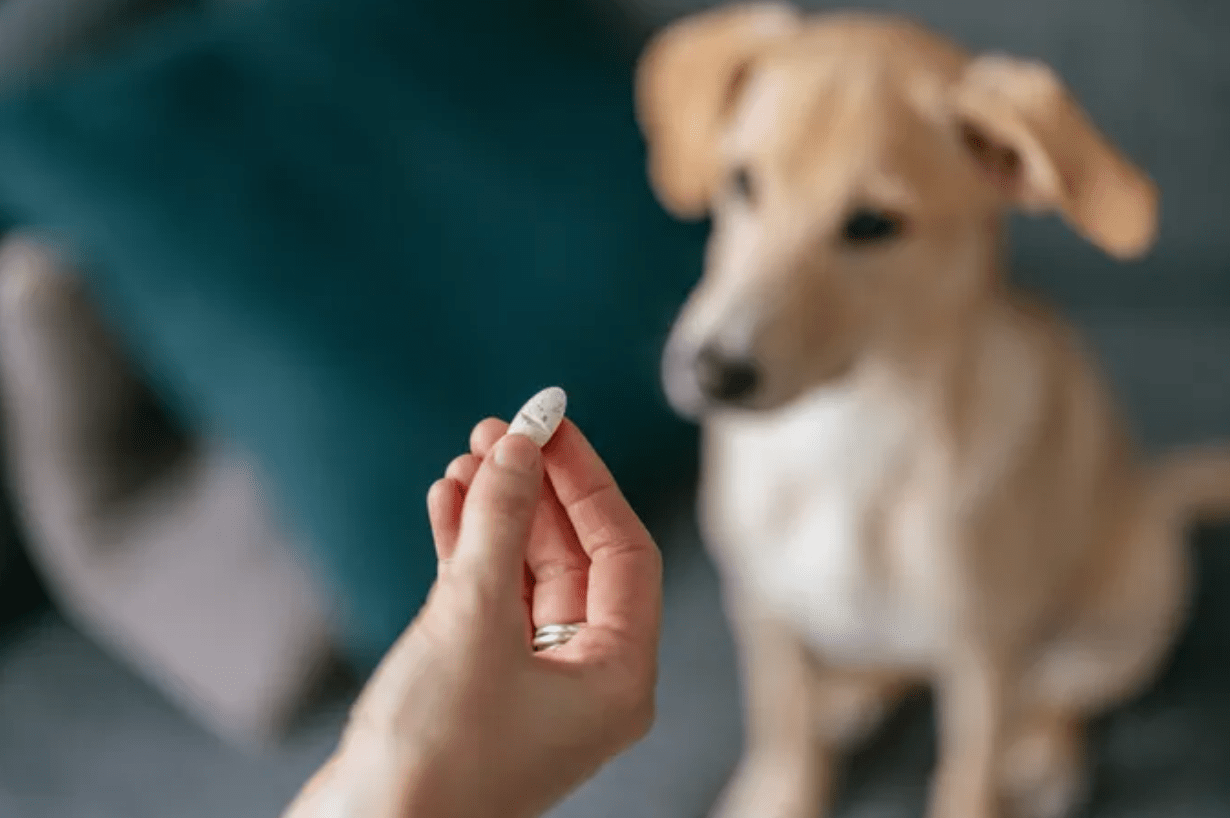
If everything else fails, discuss medication with your veterinarian.
If everything else fails, discuss medication with your veterinarian.
There is always the option of medication administered under a veterinarian’s supervision for dog owners who have tried weighted blankets, white noise, and exposure treatment with little or no success. Veterinarians have access to a wide range of drugs, including canine versions of Xanax, Paxil, Prozan, and Valium.
In order for a natural or pharmaceutical anxiety treatment for dogs to be effective, Richter advised administering it to the animal days in advance, preferably before the animal experiences any worry.
If you believe your pet will require assistance in the coming days and beyond, you should contact your veterinarian right once.
